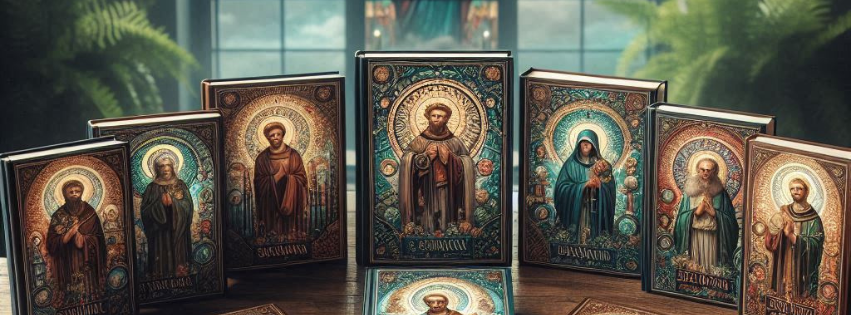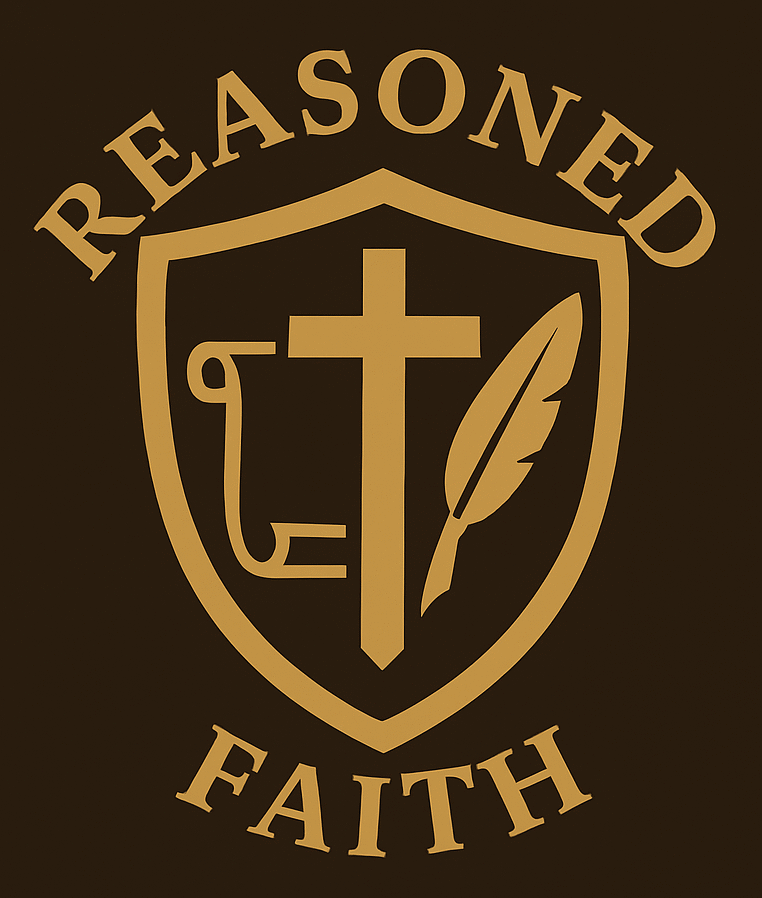
*This post contains affiliate links. If you make a purchase through these links, I may earn a commission at no extra cost to you.
I’m going to introduce you to a world that’s both ancient and evergreen: the world of Catholic saints and their biographies. These aren’t just dusty old tomes—they’re literary portals to the past, filled with tales of faith, courage, and miraculous events that have inspired people for centuries.
Now what is the role of saints in the Catholic tradition? These venerated figures serve as role models, their lives providing a blueprint for virtue and piety. The stories of saints aren’t simply biographical; they’re instructional, leading readers on how to live a life closer to God and Christian ideals. It’s this combination of education and spiritual nourishment that keeps the tradition of hagiography—that’s the study of saints—alive and thriving.
You’re going to find out about how these stories aren’t relics; they’re refreshingly relevant. When you delve into a saint’s biography, you often stumble upon timeless truths, struggles we still face, and answers to life’s persistent questions. It’s the humanity within these saintly narratives that connects so powerfully with readers across generations.
So this brings the question: what makes a Catholic saints book worth your time? That’s precisely what I’m here to help you with. We’ll explore the criteria that make these books stand out and introduce a curated list of biographies that have left an indelible mark. Think of it as your literary compass, guiding you to the works that best open the door to the saints’ venerable legacy.
Top Picks: Highly Acclaimed Catholic Saints Biographies
When it comes to delving into the lives of saints, the right biography can be a window into a world of faith, perseverance, and virtue. Now, I’m not just picking off titles from the top of my head; I’ve got a set of criteria for what makes a truly compelling saints biography. It’s about historical accuracy, the richness of narrative, the depth of spiritual insight, and the ability to strike a chord with today’s readers.
You’re going to find out about some exceptional biographies that have been widely praised for their insightful portrayals of holy men and women. ‘The Life of Saint Teresa of Avila by Herself‘ is a classic that offers a raw, first-person account of mystical experience. There’s also ‘Saint Francis of Assisi’ by G.K. Chesterton, which presents the life of Francis with philosophical flair and wit.
Choose something that resonates with you. For example, ‘The Confessions’ by Saint Augustine is not just an autobiography but a timeless work of philosophical and theological reflection, or perhaps ‘Padre Pio: Man of Hope’ by Renzo Allegri, which brings to life a modern saint who bore the stigmata. These stories provide more than history; they invite us into a dialogue with the past and its enduring legacy of faith.
If biography sounds a bit traditional to you, don’t worry too much about it. Today’s authors are finding new ways to present these timeless stories, often weaving in themes relatable to the contemporary reader. This includes contemporary issues that these saints might have had something to say about, drawing parallels between their challenges and ours. The approach isn’t just academic; it seeks to illuminate the human condition, something I believe is a powerful tool for connection and reflection.
Contemporary Saints Stories: Bridging the Ancient and the Modern
The stories of saints have been told and retold throughout the centuries, yet they never grow old; instead, they evolve with the times. In this section, you’re going to find out about contemporary works that connect the timeless virtues of saints with the challenges of today’s world. It’s not just about recounting historical events; it’s also about drawing strength from these narratives in our current context.
I’ve gathered a few recent publications that stand out for their fresh perspectives on sainthood. You’re going to see works that weave the tales of long-gone saints with modern-day storytelling techniques, resonating with readers across generations. These aren’t dusty texts; they are vibrant, creative renditions that apply saintly wisdom to everyday life.
These modern biographies of saints serve a pivotal role. They’re not merely books on a shelf; they spark conversations about how age-old teachings can shine a light on our present-day ethical dilemmas and social quandaries. By bridging the ancient past and the immediate now, they create a dialogue that can foster a sense of community and shared values. And for many, they provide a moral compass, helping navigate a world that often feels devoid of clarity.
Resources for Further Reading: Continual Spiritual Growth with Saints Literature
Now that we’ve opened the door to the inspirational world of sainthood through literature, you’re probably eager to continue your spiritual and educational journey. I’m here to help you with that next step. Whether you’re seeking more stories of heroic virtue or practical guides for your own journey, there’s a wealth of resources out there.
For those who wish to delve deeper, you can find specialized books that cater to specific interests, such as saints from particular regions, periods, or walks of life. Choose something that resonates with you, and let the saints’ examples illuminate your path.
Children and teens aren’t left out; a variety of age-appropriate books are available that bring saintly stories to life in a way that’s both engaging and formative. From picture books to youth novels, young readers can grow with heroes that showcase integrity and faith.
Joining a book club or discussion group can enhance your exploration of saint biographies by providing a community of like-minded individuals. Engage in thought-provy discussions, share insights, and gain new perspectives on how the saints’ lives can influence your everyday life.
Remember, your first attempt at reading about the saints doesn’t need to be your last. Literature on this subject is as rich and varied as the saints themselves. Keep an open heart and mind, and you’ll find that these stories are not just histories; they’re roadmaps to a more profound personal faith journey. I really hope that you continue to discover the gems within the tradition of Catholic saints, and I’d love to hear your experiences and recommendations.

Wow, reading the books of the saints have been a part of my life! In France, especially when you follow a literary curriculum in high school and university. Indeed, I was asked to read the Confessions of Saint Augustine in high school. As for Thomas of Aquin, I read his book when I studied law at the university because he talks about political systems, and the fact that you can kill a king when he behaves as a tyrant.
Thank you for sharing your experience! 😊 It’s wonderful that reading the books of the saints has been a meaningful part of your life. The Confessions of Saint Augustine is a remarkable text—one that delves into the depths of human experience and spirituality. And Thomas of Aquina’s exploration of political systems adds another layer of richness to our understanding. It’s fascinating how these ancient texts continue to speak to us across time and cultures. I appreciate your thoughtful comment! 🙏📚